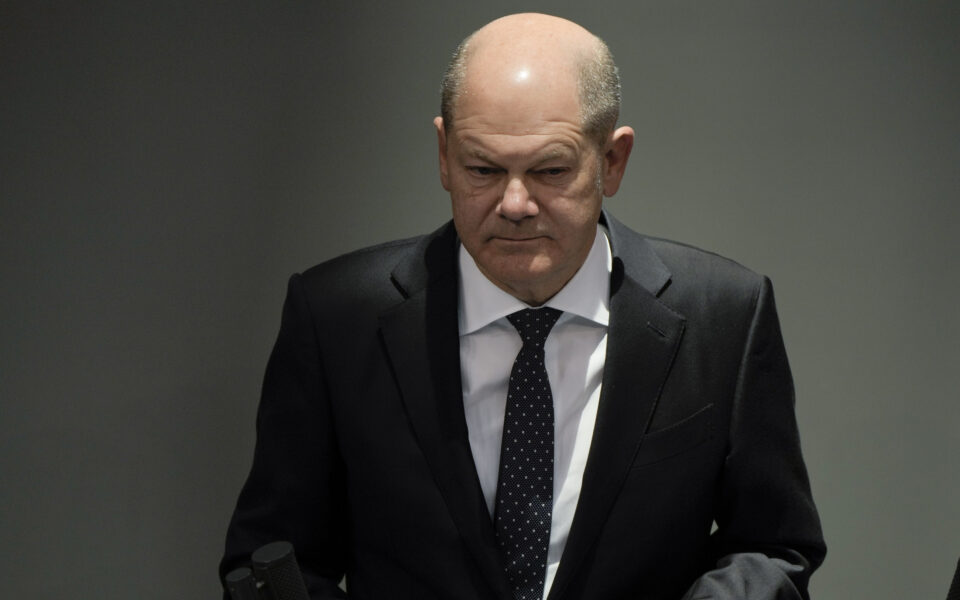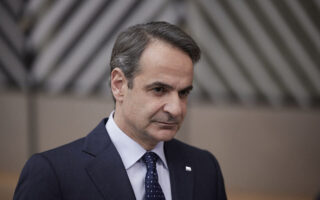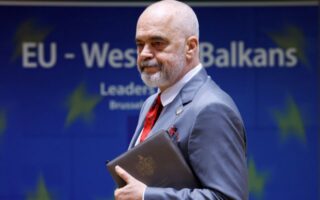Berlin backs Albania’s EU bid despite Athens’ opposition over jailed mayor

The public position taken on Wednesday by German Chancellor Olaf Scholz in favor of Albania’s candidacy to the EU revealed a slight crack in relations between Athens and Berlin.
Greece has clarified that Tirana’s intransigence in the case of jailed ethnic Greek mayor-elect Fredi Beleri is in conflict with the European acquis.
However, in his Bundestag speech on the budget, Scholz said that “when a country has undertaken far-reaching reforms, as in the case of Albania, for example, this must be recognized, otherwise there is a risk of far-reaching consequences for the enlargement process as a whole, which we cannot allow.”
Scholz refrained from making any reference to the Beleri case, but he did take a swipe at Greece, saying that “it is time for everyone to look at the big picture – and this applies to both candidate countries and EU member-states.”
Scholz made his remarks just hours before the start of the EU-Western Balkans Summit in Brussels.
For his part, European Council President Charles Michel reiterated, as he arrived at the summit, his firm commitment to the accession of these countries, but noted, to Athens’ satisfaction, that “we expect more reforms from them, especially in the area of the rule of law and the independence of the judiciary.”
Athens is also pleased with the conclusions of the General Affairs Council adopted on Tuesday as they contain clear references to Albania and the issue of protection of minorities and their rights.
Albania has been removed from the draft conclusions of the summit regarding EU enlargement at Athens’ insistence due to the Beleri case.
No change was expected in the draft conclusions of Thursday’s session until late Wednesday night.
Athens’ stance is in response to the intransigence of Edi Rama’s government, refusing to not even grant Beleri a limited swearing-in to the office of mayor of Himare.
However, Albania’s accession perspective is also becoming another reason for Berlin to promote the view of the need for qualified majority voting.
The extension of qualified majority voting requirements for common foreign policy and defense issues is being promoted by Berlin and supported by the Commission and is expected to be discussed and implemented after the European elections in June.





